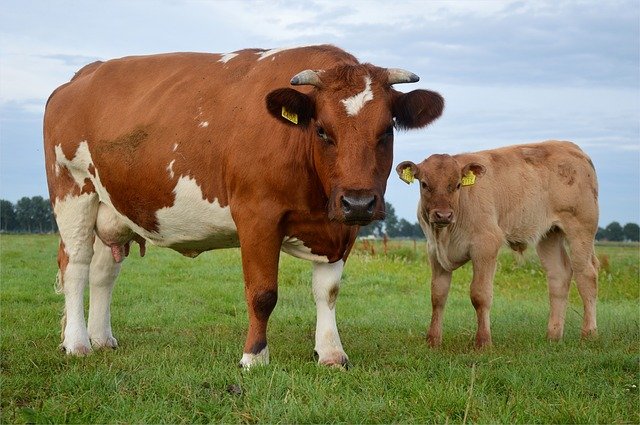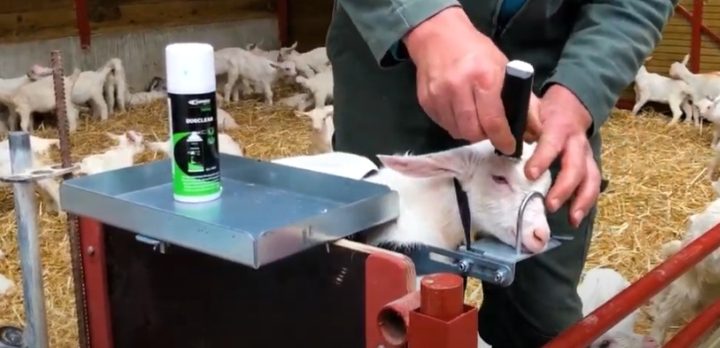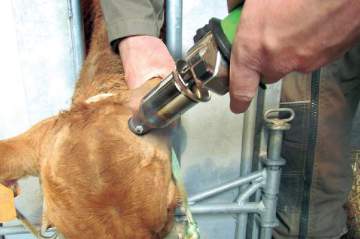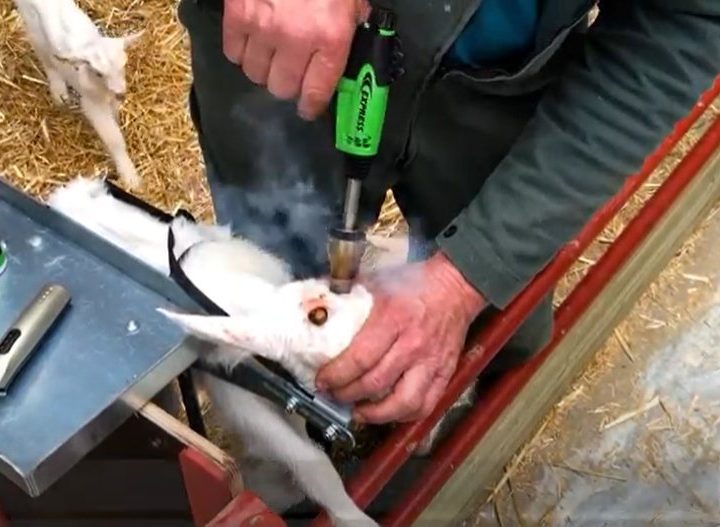
There is still a debate about dehorning cattle, because animal welfare is at stake. The strong opinions of both sides are emotional issues and are not always rational. A list of arguments for and against should be drawn up in order to get an idea of the relevance of developing this practice on farms.
Animal suffering at stake: is bovine dehorning painful?
Bovine dehorning must be carried out from the first weeks of the animal’s life. At birth, the calf has a cornual bud or cornillon. It is originally formed only from skin, the cells of which are then used to make the horn. This bud is not yet attached to the skull bone, it’s said to be floating.
During the first two months, the horn bud develops and becomes fused to the skull bone and frontal sinus. The horn is then fed by a dense venous system, which includes the cornual vein and artery.
To avoid any suffering, dehorning must be carried out before the animal is two months old. The corium is destroyed by cauterisation in a few seconds. The breeder uses a local anaesthetic before dehorning and then prevents post-operative pain with analgesic medication. It must then be properly disinfected and ensure that healing takes place quickly.
After this time, the corium becomes fused to the bone and is connected to the nervous system in a vascularised area. The dehorning then becomes painful, even with temporary anaesthesia. The healing process is long and there is a risk of serious complications (infections or haemorrhages).
Chemical dehorning
Thermal dehorning (before two months) only takes a few seconds. It creates a burn whose pain can be prevented by local anaesthesia. Chemical dehorning, on the other hand, is long and painful.
The farmer spreads a chemical paste to burn the corium while still in the bud phase. The action is not immediate and the longer burn cannot be controlled by a simple analgesic. In addition, the calf may rub against other calves and mainly its mother when it suckles. It will therefore contaminate the other animals, who risk burns, albeit smaller, but nevertheless painful.
Bovine dehorning respects animal welfare, provided that it is thermal and carried out before the calf is two months old.
Practical considerations
When cattle are on pasture, the risk of injury is reduced unless there is a conflict. Hornless animals are less likely to fight each other and, if they do, the consequences are not serious.
The absence of horn also facilitates handling and veterinary treatments. Restraint facilities are easier to use.
On the other hand, when the animals are in the barn, the proportion of injuries increases if they have their horns. They can hurt each other, sometimes unintentionally. The most problematic is access to the feeder. Animals need more space and putting their heads through the feed fence is tricky with horns. With dehorned animals, cattle can get closer more easily and are not likely to get stuck in the feed fence.
Finally, the breeder himself is less exposed with dehorned animals.
Economic considerations
Horned cattle take up more space. The infrastructure must be adapted and the density of animals is lower.
Finally, dehorned calves generally sell for more, while dehorning costs almost nothing. Performed in a few seconds with a thermal dehorner, the costs are reduced with the occasional purchase of a gas bottle that allows a large number of animals to be dehorned.
Cattle dehorning is therefore beneficial overall for the animals, as well as for the farmer, if it is thermal and performed before the animal is two months old.




